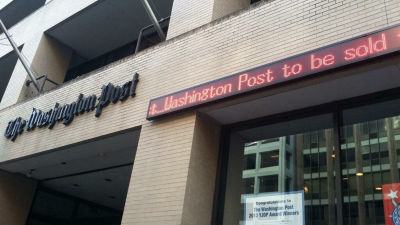How a long-established bookstore chain that failed in e-books and lost to Amazon turned around sales at a real bookstore

With the rise of Amazon, 'books' that were once available only at bookstores can now be purchased at home. While the bookstores that have stores in the city are shrinking, the old-fashioned bookstore Barnes & Noble is growing again. Popular culture writer Ted Joia clarifies what kind of strategy Barnes & Noble has taken.
What Can We Learn from Barnes & Noble's Surprising Turnaround?
Founded in 1886, Barnes & Noble flourished in the 20th century, but began to show signs of decline with the advent of the digital age.
For a time, Barnes & Noble emulated Amazon to boost online sales and introduced its own e-reader, the Nook, with little success. Gioia points out that even after Borders , a leading brick-and-mortar competitor, went bankrupt in 2011, it was unable to find a winning strategy and completely collapsed in 2018. This year, Barnes & Noble lost 18 million dollars (about 2 billion yen), fired 1,800 full-time employees, and shifted almost all stores to part-time staff. It also fired its CEO after allegations of sexual harassment.
Both in-store and online sales fell, and the stock price fell more than 80%. Even the e-book reader, which is a big favorite of digitization, has lost more than 90% of its sales, and Barnes & Noble, which seemed to disappear like Borders, will implement various improvement measures.
At one point, Barnes & Noble refurbished much of its sales floor to sell toys, greeting cards and calendars. However, Mr. Joia pointed out, ``Is there really anyone who buys toys at bookstores? In addition, Barnes & Noble, who implemented the plan to set up a cafe in the store and the plan to start a restaurant called 'Barnes & Noble Kitchen', did not go well.

In 2019, in the midst of a predicament, Barnes & Noble welcomed a new businessman named James Daunt as CEO. Mr. Daunt was a successful person who started one bookstore in London at the age of 26, and was already a person with a track record of rebuilding Waterstones, a book retail chain that was already in trouble in the UK.
Mr. Daunt was the owner of the belief that 'I will not discount the book even if the price competition is fierce' because 'I do not think the book is too expensive'. At the time of the acquisition of Waterstones, Mr. Daunt stopped all the campaigns 'buy two books, get one free', but the reason is that 'providing it for free will lower the value of the book.' I'm here.
The most surprising strategy that Mr. Daunt did at Waterstones is 'do not get advertising expenses from publishers'. Mr. Daunt refused the 'devil's contract' that once he received the money, he had to always stack the promotional books in the most prominent place in the store, and tried to put the best books in the shop window. Even more surprising, Daunt said he left that decision up to the store employees. About this, Mr. Daunt explained, 'I hope that the staff will enjoy their work more by controlling their own store.'
This strategy was successful, with almost zero returns at Waterstones, and 97% of the books on the shelves were purchased. That's a staggering number in the world of books, Gioia points out.
Mr. Daunt, who became CEO of Barnes & Noble based on this success, was the worst timing because it was the year when the new coronavirus infection began to spread. But Daunt took the pandemic as an opportunity to take the book off every shelf in the store and asked employees to decide whether to keep it, and said it was 'intellectually satisfying, not pretentious, It seems that he reformed the product lineup in hopes of becoming a bookstore that provides food for the soul.
With these strategies, Barnes & Noble's book sales began to grow again, returning to pre-pandemic levels in 2021 and continuing to grow. Readers have regained their trust in the company, and sales staff have regained their motivation.

“The lesson of rebuilding Barnes & Noble is to put the book and the reader first, and everything else second,” Gioia said. If you want to sell a newspaper, you have to love the song, and if you want to be successful in journalism, you have to love the newspaper.This love cannot be taught, but it is seen. Find and hire people who are passionate about this and who believe in it dedicately.These are the people you can trust.'
On the social site Hacker News, various opinions have been flying in response to Mr. Joia's point, and among them, ``I think the important insight is that bookstores are no longer the place to get books. Stores won't be competing with inventory anymore, they'll just be eaten by Amazon, but I go to bookstores to discover new books and to feel surrounded by books and the people who love them. To taste it. Mr.

Related Posts:
in Posted by log1p_kr







